Sociology 11, Philippine Contemporary Social Issues, is a “below-100” elective course offered by the Department of Sociology, College of Social Sciences and Philosophy, University of the Philippines - Diliman. The course is designed to introduce students, especially non-majors, to the discipline of sociology and develop social conscientiousness and outlook. In this course, we will learn how to make sense and analyze social realities with various sociological frameworks the “feels” and “hugot” that we daily experience. We will see the interconnectedness and dependency of our individual social positions to wider patterns, systems, and structures in society. And vice-versa, we will render visible how we, individuals, also structure the structures that surround us.
By gaining deeper and comprehensive knowledge of Philippine social realities, this course aims to help you navigate through everyday life, inspire empathic understanding in how we go about our daily relations, and invoke immediacy for social change. I hope that you will be able to apply inclusivity, sensitivity, and social contentiousness in your future professions.
Course Catalogue Description
Course Number: | Socio 11 |
Course Title: | Philippine Contemporary Social Issues |
Course Description: | A sociological examination of contemporary expressions of persistent social issues in Philippine society |
Prerequisite: | None |
Course Credit: | units |
Meeting Type: | Distance Learning |
Course Goals: | To develop sociologically-informed analyses and critique of various Philippine social issues |
B. Background and Rationale
The goal of a liberal education is not just to improve the analytical and cognitive skills of students. More importantly, it seeks to inculcate in students the capacity to forward informed criticisms of social events occurring within their social milieu. As an elective course intended for non-sociology majors, Socio 11 primarily centers on the utility of various sociological perspectives to develop skills to analyze social issues and to criticize social realities as they occur in contemporary times as part of their undergraduate training in the University of the Philippines. In doing so, the course allows students to formulate and imagine alternative futures where and when undesirable social conditions emanating from the contemporary social arrangements are alleviated, if not transcended.
C. Course Outcomes
Upon completion of the course, students must be able to:
CO 1. | Identify and explain the elements of various frameworks and perspectives of sociological analysis |
CO 2. | Apply the various frameworks and perspectives of sociology in analyzing persistent social problems in the Philippines as they recur in a multiplicity of forms in contemporary social issues |
CO 3. | Formulate sociological critique of Philippine social realities and its consequences to the lives of Filipinos |
CO 4. | Imagine futures for Philippine society |

- Teacher: Ervin Grana
- Teacher: Hannah Glimpse Nario-Lopez
SOCIOLOGY 132
SOCIOLOGY OF DEVIANT BEHAVIOR
NUMBER OF UNITS: 3.0
ACADEMIC YEAR AND TERM OFFERED: 2021-2022, SEMESTER 2
INSTRUCTOR INFORMATION
Asst. Prof. Hannah Nario-Lopez
Department of Sociology
College of Social Sciences and Philosophy
University of the Philippines Diliman
hcnario@up.edu.ph
COURSE DESCRIPTION AND LEARNING OUTCOMES
This course is an introduction to the general phenomenon of social deviance— a concept often misunderstood yet persistently used by societies to justify control (isolate, treat, correct, punish, execute) over particular types of people. The definition of ‘deviance’ is fleeting. Deviance has changed across societies, at different time-periods, and has been experienced differently by dissimilar types of people. Deviance is hard to pin-down. And arguably, what seems to be the only objective reality left in ‘deviance’ is its capacity to reveal the many other inequalities and injustices in society.
In this class, we will learn to examine how various sociological perspectives have viewed, interpreted, and ‘dealt with’ non-conformity and criminality. We will critically interrogate the social landscape of deviance using social scientific theories, sociological concepts, and empirical research as tools for analysis. As we cover the core theories and forms of deviance largely in terms of normative variations, delinquency, and criminality, we shall locate the local Filipino ‘deviant’ experience in the global context and juxtapose experiences of different societies.
By the end of the semester, each student must be able to:
Demonstrate comprehension of sociological concepts in the area of the sociology of deviance;
Formulate sociological analysis about different facets of deviance and social control;
Practice the ability to assess empirical evidence and identify and reflect on important issues in ethics which may arise in the study of deviance and social control; and
Exhibit critical thinking in the form of clear, evaluative statements during discussion and assessment activities in class.
COURSE FORMAT AND METHOD OF INSTRUCTION
The class will be delivered via distance learning method of instruction. Instruction will be carried via this course pack. A course pack is composed of resource-based modules with descriptively rich step-by-step guide to activities that students can undertake independently.
We will have combinations of synchronous and asynchronous sessions. During the synchronous sessions, we will hold ‘live’ online lectures and breakout sessions via Zoom to discuss the topic assigned for the week. Asynchronous sessions will be dedicated for students’ independent study to complete watching of recorded lectures or do activities. At each module, student learning will be assessed with an Analyze and Apply activity.

- Teacher: Hannah Glimpse Nario-Lopez
Socio 140: Socialization and Group Interaction
- Teacher: Clemen Aquino
- Teacher: Clemen Aquino
Readings in Sociology
- Teacher: Clemen Aquino
Socio 204: Readings in Sociology (On Social Research Methodologies and the Philippine Context)
- Teacher: Clemen Aquino
